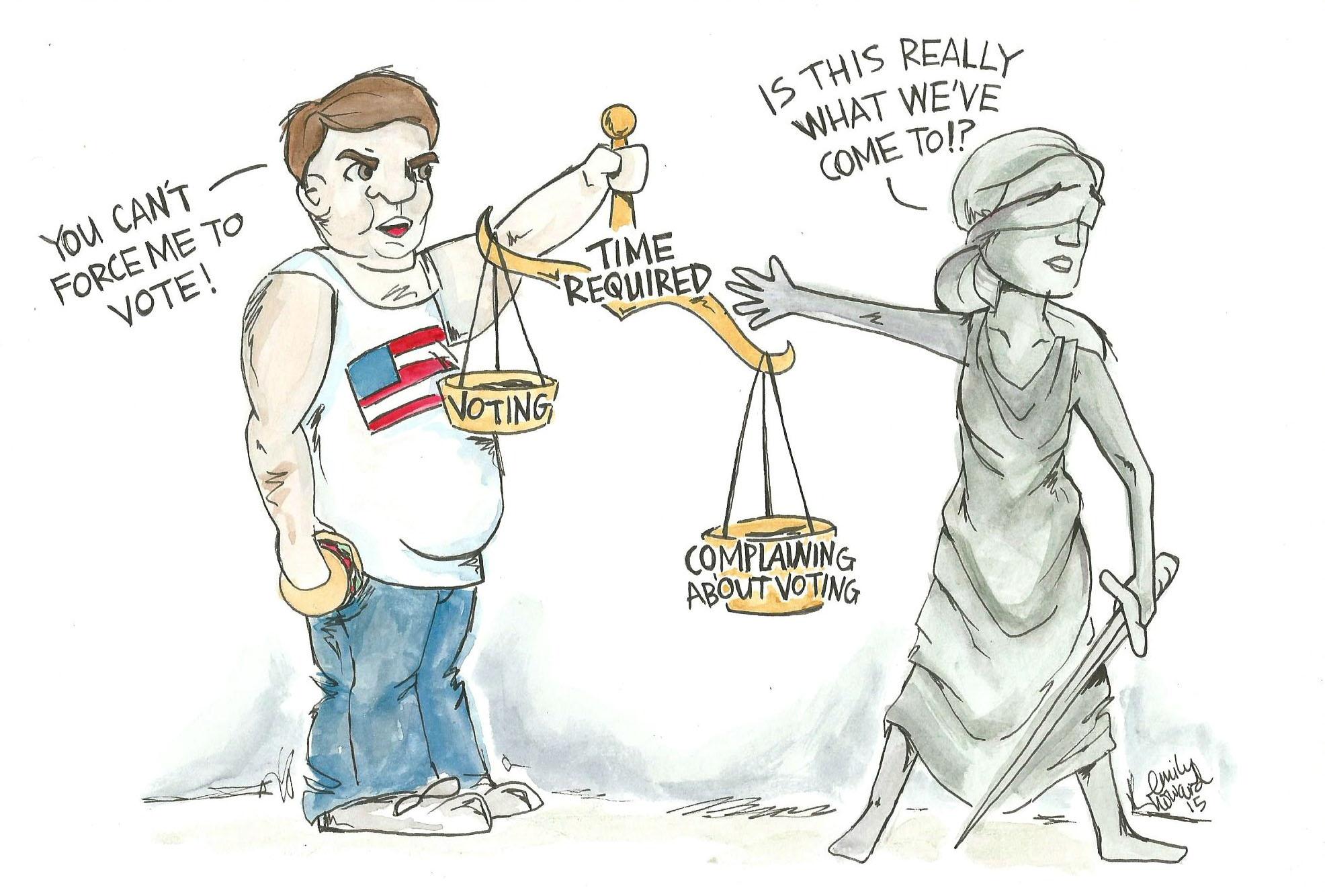During a speech last week, President Barack Obama said he thought mandatory voting would be a positive development for American democracy, according to the Washington Post.
He has since had to walk back the remark in light of the negative reaction. White House press secretary Josh Earnest said the plan was not a “specific policy prescription,” according to The Hill.
A main point of contention was the constitutionality of the idea. Conservative thinkers and groups argued mandatory voting would be unconstitutional on First Amendment grounds while Michele Jawando of the Center for American Progress said it would be constitutional, provided citizens were given a none-of-the-above option, according to Slate.
I tend to believe such a proposal would run into constitutional trouble. Voting is one of the deepest forms of civic expression as well as the choice to not vote for reasons of principle.
Constitutional issues aside, the problem with the president’s answer runs much deeper. President Obama said that mandatory voting would “counteract money more than anything,” according to The Washington Post.

I feel the best way of counteracting money in politics is, well, counteracting money in politics.
The process will not be easy. A constitutional amendment will be required, since the current campaign finance problem sprang from the Supreme Court decisions Citizens United v. FEC and McCutcheon v. FEC.
Yet, that should be the primary focus of any efforts on electoral reform. Maintaining a system of mandatory voting while allowing corporations to endlessly contribute to the political process will not address the fundamental problems of the system.
Constitutional amendments are not easy, but if there was any issue that called for an amendment, it is this one.
Historically, we have used constitutional amendments to address critical systemic problems in our political system and society. The presence of big money corrupting the democratic process is such an issue.
In addition to campaign finance, there are other issues to address. Election Day should be made a national holiday, and perhaps expanded to more than one day to make voting easier.
Another challenge will be patching the hole in the Voting Rights Act brought about by yet another Supreme Court decision. The present legislative means that a satisfactory solution to that problem will not be coming anytime soon.
Voting is a key democratic activity that has come increasingly under attack. The unpleasant experience in Boone over the on-campus voting site in the past few years has made that reality clear for us as Appalachian State University students.
The system needs major reform, but mandatory voting is not the answer. It is disappointing that the president, when given the opportunity to get behind meaningful reform, changed the subject.
Griffin, a junior journalism major from Madison, is an opinion writer.
STORY: Kevin Griffin, Opinion Writer
CARTOON: Emily Howard, Cartoonist

Robert David Steele Vivas • Mar 24, 2015 at 10:55 am
I really appreciate anyone focusing on electoral reform — and I worry that most people do not understand the fullness of the issue. Getting money out (public funding), ending gerrymandering (tightly drawn districts), and expanding the debates now dominated by the two party tyranny (at least five, plus cabinet level debates) are three of eight core reforms that are needed. The other five are ballot access, free media, paper ballots counted on site — hugely important in the face of all the electronic and mail fraud –instant run-offs instead of plurality thin majority winner take all, and all legislation to be posted online in advance for citizen comment and vote. There is an emerging non-partisan electoral reform movement slowly gaining traction, more information can be found by looking for “open power electoral reform” online — a direct URL if permitted is http://tinyurl.com/OpenPower — the Twitter hashtag is #ElectoralReform.